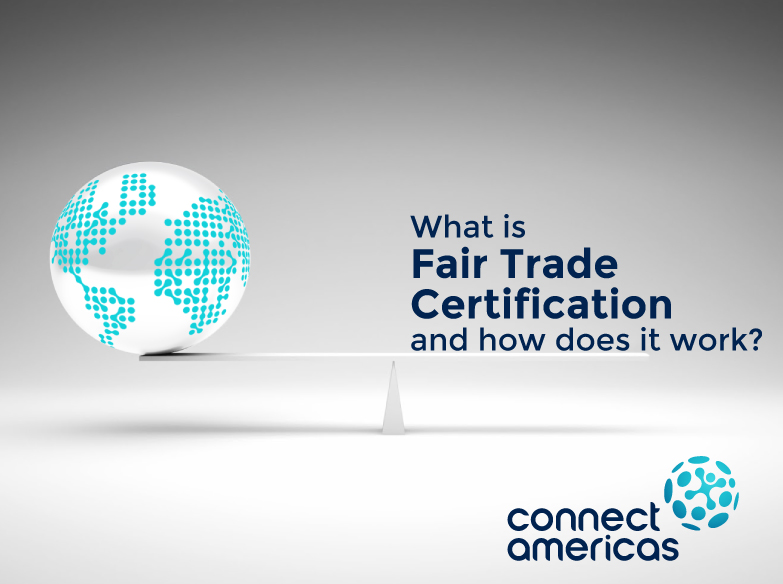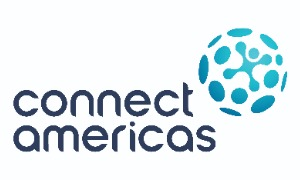- There are now over 27 000 Fairtrade labelled products sold in over 115 countries
- A total of 19 labelling initiatives operate in Europe, North America, Japan, Australia and New Zealand
TRADE
What is Fairtrade Certification and how does it Work?
Fairtrade serves as an alternative to conventional trade and is based on the partnership between producers and consumers with the goal of improving lives and reducing poverty through ethical trade practices. The Fairtrade certification system aims to assure consumers that their purchase meets special social, economic and environmental standards.

HIGHLIGHTS
Over 1.2 million farming families in 70 developing countries across Africa, Asia and Latin America benefit from Fairtrade. Fairtrade is a system of certification and labelling governed by Fairtrade International (FLO) - a non-profit, multi-stakeholder association of 24 member organizations - which audits products across the supply chain, from producer to trader to final product.
The system seeks to collaborate with marginalized producers and workers to help them move towards economic self-sufficiency, to empower producers and workers as stakeholders in their own organizations, and contribute to the creation of greater equity in international trade. Products bearing the Fairtrade Mark include coffee, tea, herbs, cocoa, fresh fruit, vegetables, sugar, nuts, oils, butters, beans, grains, wine, apparel, flowers, honey and spices, body care products, spirits with certified ingredients now present in ready-to-drink beverages.
Fairtrade has achieved very strong market share in certain markets, including 53 percent of bananas sold in Switzerland’s supermarkets and 22 percent of ground coffee in the UK. There are now over 27,000 Fairtrade labelled products sold in over 115 countries.
How does it work?
Fairtrade International develops and reviews the international Fairtrade Standards to which producers, exporters and importers must comply, while locally based FLO Liaison Officers assist producers in obtaining certification and developing market opportunities. Producer groups with Fairtrade certification are eligible to join associations known as producer networks, representing producers in Latin America and the Caribbean, Africa, and Asia.
A total of 19 labelling initiatives operate in 24 countries in Europe, North America, Japan, Australia and New Zealand. Labelling initiatives are national organizations that promote Fairtrade within their country and licenses companies to use the Fairtrade Mark on products. Compliance is inspected carried out by FLO-CERT, an FLO owned independent certification company that inspects producers and traders for compliance with Fairtrade standards. Among ethical labels, FLO- CERT is the only ISO 65 accredited certification body.
Fairtrade price floor and premiums
The Fairtrade International document “Fairtrade is Unique” outlines two of the primary innovations of the Fairtrade system: minimum pricing and premiums. The Fairtrade Minimum Price is a price floor that seeks to cover the average costs of sustainable production for producers. This strategy is intended to offer farmers a safety net when market prices fall below a sustainable level, offering a form of security from sudden drops in crop value.
Fairtrade International decides prices on a product by product basis, consulting with both producers and business partners on a regular basis to establish workable minimum prices that offer the most well-being to farmers and workers. This process is perpetually under review and prices are updated regularly. Under Fairtrade Standards, buyers are required to pay at or above market prices (includes minimum price floor) and producers are free to negotiate better prices based on the increased demand or the high quality of their product. Fairtrade International sets higher prices for organic and select grade produce on account of higher production costs.
Certified producers also receive a Fairtrade Premium derived from additional funds above the purchase price for investment in social, economic or environmental projects. The local use of this income is decided democratically among farmers and workers at the general assemblies of small producer organizations. Plantation workers select representatives to a Joint Body to determine, with input from management, the best use Premium for their families, communities, and the workers themselves. These funds are most frequently allocated towards education, healthcare, yield/quality improvements, and processing facilities designed to boost incomes.
Getting a business involved
Fairtrade International instructs businesses interested in purchasing or selling Fairtrade goods to contact their national Labelling Initiative (i.e. Fair Trade USA) or Fairtrade International directly for assistance in individual business assessment, certification, obtaining a license, making Fairtrade business contacts and/or accessing promotional material. In its “Bringing Fair Trade to Market” guide for traders, brand owners, retailers and distributors, Fairtrade International outlines the following steps for getting involved:
- Traders seeking to import or manufacture Fairtrade certified products must apply for certification. Prior to applying, traders should verify that they deal in products that have a Fairtrade International product standard and that they are willing to respect the standard, available at www.fairtrade.net/standards.html.
- Brand owners must purchase from Fairtrade certified traders, or producer groups must become a licensee to use the Fairtrade Mark on their products. From producer to labelled product, all products must be certified along the entire supply chain, including manufacturers. Certification can be obtained at http://www.flo-cert.net/.
An application for licensing may be submitted to one’s national Labelling Initiative or Fairtrade International. Approval is followed by the signing of a license contract, the regular reporting of Fairtrade product sales and the payment of license fees for these sales. - Retailers or distributors of Fairtrade labelled and licensed products from other companies may sell products without registering through Fairtrade international or a national Labelling Initiative. To sell branded products with the Fairtrade Certification Mark, retailer or distributors must become a licensee and sign a license contract.


Follow Us